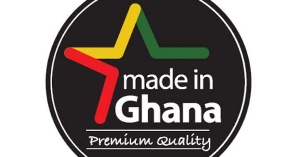 Food products (fresh, processed and manufactured) dominate the 19 categories
Food products (fresh, processed and manufactured) dominate the 19 categories
A research conducted by Konfidants, an international business advisory firm, has stated that only 26 per cent of goods sold in Ghanaian supermarkets are made in Ghana.
These results were reached after the research firm surveyed nine of the leading supermarkets and two fuel stations in Accra on 19 product categories.
According to Konfidants, the result is an improvement as compared to the 2019 survey when only 18% of goods surveyed were Ghanaian products.
However, despite a huge growth in the number of multinational supermarkets in the last decade in the country, the invasion is yet to be translated into an avenue to make money for local manufacturers.
Meanwhile, the leading supermarkets include; two popular fuel station marts in Accra include Shoprite (Accra Mall), Game (Accra Mall), Palace Supermarket (Palace Mall), Koala (Osu), Maxmart (37), City Dia (La), Melcom (North Kaneshie) and Marina Mall Supermarket (Airport), China Mall (Spintex), Baatsonaa Total (Baatsonaa), Airport Shell (Airport).
The survey
In all, a total number of 7,983 brands (from the 19 product categories) were counted across all 11 retail outlets included in the survey. The survey was conducted in December 2020. Out of this number, 5,943 (74%) were foreign brands, with only 2,040 (26%) being made-in-Ghana brands.
Despite the increase in the number of made-in-Ghana goods sold across the selected supermarkets, the best performing category of made-in-Ghana goods is water (with 60% of all water on sale produced in Ghana), followed by eggs (with 55% MIG), fruits and vegetables (52% MIG) and spreads (44.74%)
The worst-performing categories are biscuits and confectionaries (6% MIG), noodles and pasta (6%) and utensils and cutlery (7% MIG).
Food products (fresh, processed and manufactured) dominated the 19 categories in which goods are visible in the supermarkets
“As was the case in 2019, food products (fresh, processed and manufactured) dominate the 19 categories in which MIG goods are visible in the supermarkets. Fourteen (14) of the 19 categories are food products. Consequently, all the best 5 performing categories are food-related,” the report stated.
The research that more can be done despite the performance of the dominant food product categories.
“The research also revealed some disturbing trends in the following products: Only 2% of jams and marmalades on the shelves are Made-In-Ghana, which is worrying given that 58% of Fresh Fruits on the shelves are Made-In-Ghana. (This is one area where there is a clear need and opportunity to add value locally). Over 62% of all rice, salt (65%), fresh meat (66%), fresh poultry (70%) and even chocolate (65%) brands on the shelves were foreign as well. Given these products have very strong production possibilities on the local market, this is quite worrying,” it stated.
Recommendations
Efforts must be made by policymakers and key stakeholders to review the shelf presence of made-in-Ghana goods, to ensure these efforts are holistic, dealing with the very roots of the problem and ensuring that any results attained are not just at face value but are deeply impactful and sustainable.
It also noted that the overall competitiveness of made in Ghana products (and manufacturers) need to be improved. Local small producers will need support to make their products more competitive in quality, standards certifications, branding, pricing and financing. Innovative financing options by financial institutions and the supermarkets could provide accounts receivable financing solutions that can assist small suppliers to comfortably adjust to the long payment periods of the supermarkets.
It further called on the Ministry of Trade and Industry and its agencies such as the Ghana Enterprises Agency (Formerly NBSSI), National Entrepreneurship Innovation Program (NEIP), Standards Authority to collaborate with the FDA and other stakeholders such as industry associations to come up with a holistic policy and program framework to improve shelf space of made in Ghana goods.










